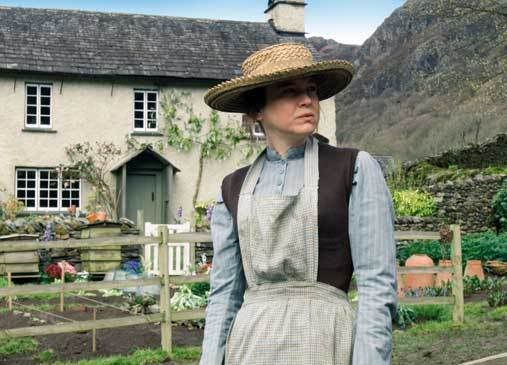There is no better satire of Victorian life than the musicals of Gilbert and Sullivan. And while I enjoy all of Gilbert and Sullivan's musicals, I definitely have a soft spot for Pirates of Penzance.
I never get tired of watching the 1983 film adaptation of Pirates of Penzance, starring Kevin Kline. It tells the story of Frederick, an upstanding young man who happens to have spent his youth among pirates. On his 21st birthday, he announces that he is going to leave piracy behind and devote himself (albeit regrettably) to the "extermination" of his former friends. Once he falls in love with a girl, whose father is a Major General. Everything seems to be going well for Frederick until his former pirates friends show up and hilarity ensues.
In the end, the girls' father, General Stanley, proves himself a "model of a modern Major General" by accepting the pirates, who, after all, "with all their faults" still "love their Queen." It turns out that what they really crave is to settle down for a life of "unbounded domesticity." Of course, it doesn't hurt things when it turns out the pirates are actually peers of the realm. Being a rather dotty, social climbing member of the nouveau riche, the General immeadiately instructs the pirates to: "resume your ranks and legislative duties, and take my daughters, all of whom are beauties!"
There is no question that Kevin Kline steals the scene as the Pirate King. His sense of humor and ability is reminiscent of his peerless work in A Fish Called Wanda. His on-stage athletics are pretty impressive as well!
My sister and I watched this film more times than I could possibly count--50 at least. One of our favourite activities was attempting to sing "I am the very model of a modern Major General." Not an easy feat! The following scene includes both "Modern Major General" and the General's little song about being an orphan--which of course instantly melts the pirates' hearts (being orphans themselves, and good Englishmen at heart, they are doubtless well-schooled in the works of Dickens. It would be unthinkable to rob an orphan of his only company).
Saturday, October 11, 2008
The Pirates of Penzance
Posted by
Margaret
at
2:34 PM
13
comments
![]()
![]()
Wednesday, August 27, 2008
Review: How to Steal a Million
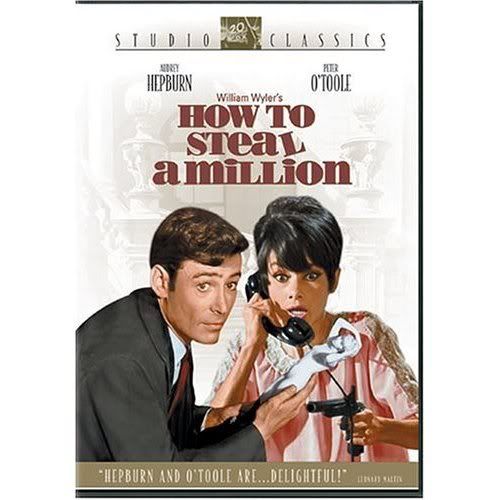
After reading a great post on Art Blog by Bob about famous forger, Han van Meegeren, I was reminded of the 1966 William Wyler film How to Steal a Million, starring Audrey Hepburn and Peter O'Toole. It's an art-heist romantic comedy featuring some great performances.
Audrey Hepburn stars as Nicole Bonnet--a hard-working, earnest young woman who whose father, Charles Bonnet (a delightful Hugh Griffith) just happens to be a brilliant art forger who's made a fortune passing his work off as originals by old masters. One night while her father is out for the evening, Nicole discovers a rather well-mannered burglar (Peter O'Toole) who appears to be stealing one of her father's paintings. After accidentally shooting him, she drives him home so that the police won't be called (the paint is still drying on the canvas of the fake Van Gogh that O'Toole appeared to be stealing).
Later, Nicole's father Charles receives a visit from a museum that wants to borrow the family's "Cellini Venus"--the sculpture that forms the foundation of the Bonnet family's reputation as great art collectors. Charles signs a form insuring the sculpture for 1 million dollars, only to discover that in doing so he's effectively consented to have the sculpture tested to insure its authenticity. After confessing to his daughter that the sculpture is a fake, sculpted by her grandfather, with her grandmother posing--"before she started having those enormous lunches!"--Griffith's character panics, fearing the sculpture will be exposed as a fake and destroy his reputation.
Nicole reassures her father that she has an idea: she'll enlist the help of the burglar she's met (Peter O'Toole) in order to steal the sculpture back from the museum, before they can finalise the tests. What follows is a humorous caper film, filled with great views of Paris (the old Hotel Ritz, in particular). Hepburn also sports a memorable, elegant Givenchy wardrobe. The film is great, light-hearted fare. Eli Wallach puts in a particularly memorable performance as a crazed art collector who will do anything to get his hands on "the Venus."
The following scene takes place at Nicole Bonnet's mansion, after O'Toole's character has broken in to test one of her father's paintings.
Image courtesy Amazon.com
Posted by
Margaret
at
6:46 AM
8
comments
![]()
![]()
Labels: film
Thursday, August 21, 2008
Goodbye, Mr. Chips (1939)
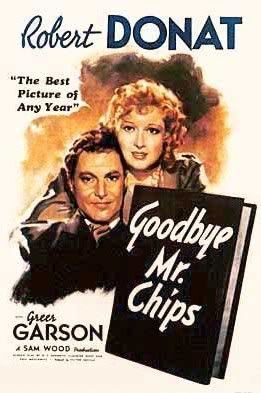
I love movies about great teachers. It's my weakness--Dead Poet's Society, The Emperor's Club--give me a movie about inspiring educators and I'm sure to love it. Goodbye, Mr. Chips is in a bit of a class by itself, however. It has been remade several times, but the original, starring Robert Donat as Charles Chipping, remains a masterpiece. The film garnered Donat an Oscar for best actor, and was nominated in pretty much every other category, including Best Picture (it lost to Gone with the Wind--and faced tough competition from the likes of the Wizard of Oz). Robert Donat's portrayal of "Mr. Chips" progression from a shy, young teacher to a school institution is masterful and remains a standout performance.
Goodbye, Mr. Chips is based on James Hilton's 1934 novel of the same name and tells the story of Charles Chipping, a Latin teacher at Brookfield, a prestigious boarding school. The story opens in 1870 with Chipping's arrival at Brookfield, just as the Franco-Prussian War was breaking out. Chipping is painfully shy and lacks confidence in his teaching abilities. His reticence makes him a target for the boys' rambunctious ways, nearly costing him his job. Determined to be successful at Brookfield, he transforms himself into a strict disciplinarian, earning the boys' respect at the cost of his popularity.
After losing an important promotion as the result of his unpopularity, Chipping goes on vacation in Europe, where he encounters his future wife Katherine while lost on a mountaintop. They marry, and through their relationship Chipping (she gives him his nickname)begins to soften. Sadly, tragedy strikes the couple very early in their marriage, but Katherine has helped Chips to see his relationship with the boys in a different light. He becomes very popular with the students and having Sunday afternoon tea with Chips becomes a beloved tradition.
One of the most pronounced themes in the film is the importance of continuing education in the midst of war. This is hardly surprising, given that Britain was deeply embroiled in World War II at the time of the film's release. After the outbreak of World War I, Mr. Chips is actually coaxed out of retirement at 65 to serve as headmaster (the position he was overlooked for years earlier). He does an excellent job boosting the student's morale in the midst of crisis. There is also a clear nostalgia for the Victorian era, and for the past in general (after all, Chips teaches a dead language!). This is also demonstrated by Chips' reluctance to adopt the "modern" Latin pronunciation (which nearly gets him forced into retirement!). There's a great scene where Chips tries to explain to the headmaster how much more glorious the old pronunciation of Caesar's words: "veni, vidi, vici" sounds compared to the new version (sounds like "weenie, weedy, wiki"). Although I was taught modern pronunciation, I must say I'm in agreement with Chips. There are, of course, aspects of the story that seem rather dated, such as the scene when Mr. Chips takes his cane to a rebellious youth. But I don't see this as a problem because the story is a historical piece and should be seen as such.
Sentimentalist that I am, I never fail to burst into uncontrollable tears at the film's close, when the dying Mr. Chips overhears his friends discussing what a shame it is that Chips never had any children of his own. He responds: "I thought you said it was a pity... pity I never had children. But you're wrong, I have. Thousands of them ... thousands of them ... and all boys." The story is a classic, and I particularly enjoy the way the film follows the protagonist through his entire life, and showing the audience the disappointments, tragedies and triumphs that make up Chips' life. It's also a movie that I appreciate more each time I see it. I remember that in high school, while I appreciated Mr. Chips, I preferred the flashier, more overtly sentimental Dead Poet's Society. I suppose my perspective has changed over time, because these days I'm attracted more to the subtleties of Goodbye, Mr. Chips.
Do any of you have other favourite movies about education you'd like to share? I always love hearing about new ones!
image courtesy Wikimedia
Fair use rationale:
1. This image is being used to illustrate the article on the movie in question and is used for informational or educational purposes only.
2. It is believed that this image will not devalue the ability of the copyright holder to profit from the original work.
3. No alternate, free image exists that can be used to illustrate the subject matter.
Posted by
Margaret
at
10:43 AM
7
comments
![]()
![]()
Labels: film
Sunday, August 10, 2008
Dante's Inferno to be released September 23rd
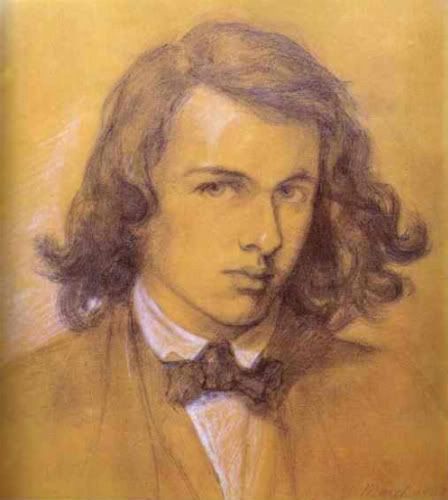
Several of you have made comments about the 1967 BBC Rossetti documentary, "Dante's Inferno." After doing a bit of research, I discovered that it will be released on DVD for the first time this September.
The box set will be available at Best Buy September 23rd for $69.99
Synopsis of Dante's Inferno:
One of director Ken Russell's earliest films, Dante's Inferno is a made-for-TV biopic about the British poet and painter Dante Gabriel Rossetti (Oliver Reed), who was a founder of the Pre-Raphaelite Brotherhood during the late 1800s. The style was influenced by romanticism and Renaissance painters. Other founding members of the movement were William Morris (Andrew Faulds), Edward Coley Burne-Jones (Norman Dewhurst), and John Everett Millais (Derek Boshier). Iza Teller plays Dante's sister, the poet Christina Rossetti. Judith Paris plays his wife, Elizabeth, who was driven to suicide.
~ Andrea LeVasseur, All Movie Guide
The film is being released as part of a series of BBC documentaries directed by Ken Russell. The DVD, entitled "Ken Russell at the BBC" focuses on biopics of famous artists. Titles include:
Elgar (1962)
The Debussy Film (1963)
Always on Sunday (1965)
Isadora Duncan (1966)
Dante's Inferno (1967)
Song of Summer (1968)
Dance of the Seven Veils (1970)
Posted by
Margaret
at
12:55 PM
12
comments
![]()
![]()
Saturday, August 9, 2008
BBC Announces Pre-Raphaelite Drama
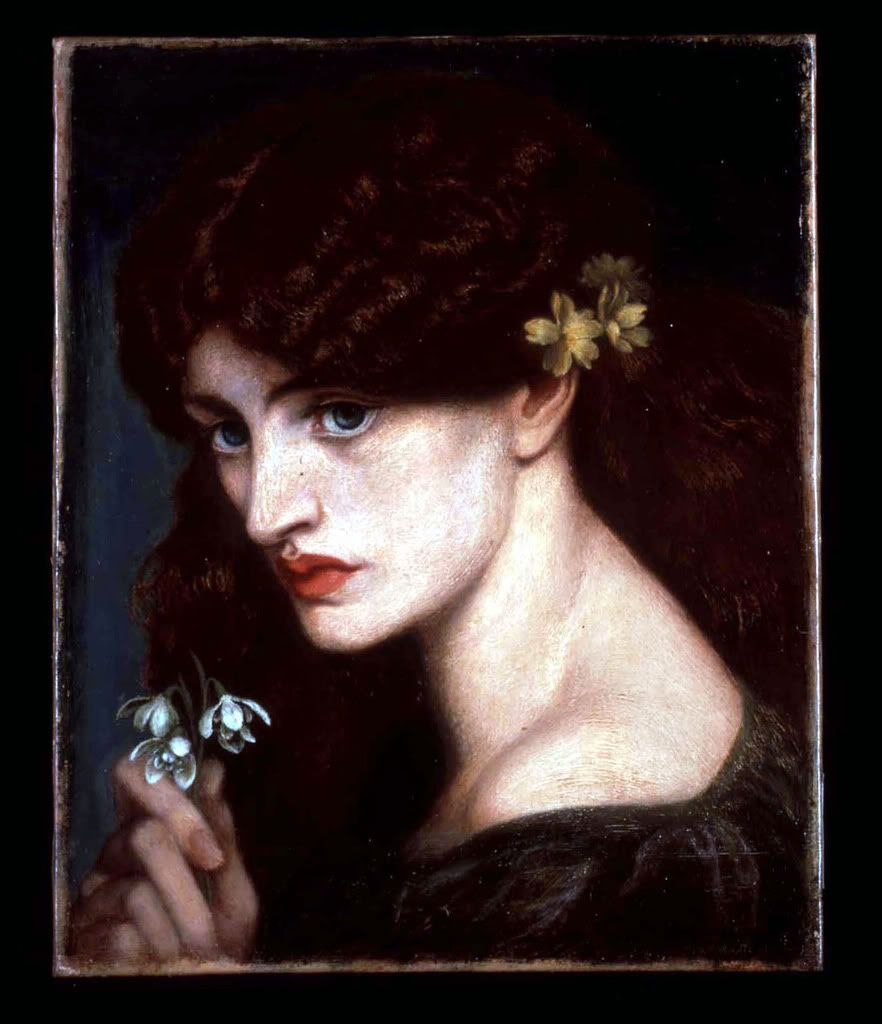
For those of you who can't get enough of the Pre-Raphaelites, the BBC has announced that a new drama is in the works that will focus on the lives and loves of the revolutionary group of English painters.
The miniseries, entitled "Desperate Romantics," will trace the development of the Brotherhood and their unique approach to art. Variously described by its creators as "Entourage with Easels" and "the Boy Band of the 19th century," the story will be looking at the sexier side of the Pre-Raphaelites. I have some deep reservations with the project, as I did with the latest BBC reincarnation of Brideshead Revisited, but I'm reserving judgement for the time being, except to point out that there was much more to the Pre-Raphaelites than "Entourage with Easels!"
Aside from the 1975 small-screen adaptation about the Pre-Raphaelites entitled The Brotherhood (starring Ben Kingsley as Rossetti), there really haven't been any films about the Pre-Raphaelites, probably because the art of the Pre-Raphaelites was very unpopular after World War II. Nevertheless, in reading about the lives of the Pre-Raphaelites, there's so much fodder for screenwriters that rather I'm shocked we haven't seen more film adaptations of their story.
The script for the BBC miniseries is written by Peter Bowker, whose credits include Blackpool and Shakespeare Re-Told. He's also penned the script for a new ITV production of Wuthering Heights, due out in the fall of this year.
Filming for the series "Desperate Romantics" is set to begin in 2009. Look for more information to follow!
Thanks to Stephanie Pina, at Pre-Raphaelite Sisterhood, for bringing this story to my attention!
Posted by
Margaret
at
11:39 AM
6
comments
![]()
![]()
Labels: film, news, pre-raphaelites
Wednesday, July 30, 2008
Brideshead Revisited--Revisited
When I heard news a couple of years ago that there was going to be a film version of Brideshead Revisited, I was cautiously excited. After all, there has been an acclaimed miniseries version in 1981, starring Jeremy Irons and Anthony Andrews, but never a big-screen adaptation. It's taken a while for the film to materialize, but it's finally here and set to debut in September. The other day I heard there would be tickets to see the premiere here in Edmonton in a week, and I was excited to see it. That is, I was, until I saw the trailer.
The first time I encountered Brideshead Revisited was several years ago on a quiet Sunday afternoon in Vancouver in the home of one of my English Professors, Dr. Klassen. I had heard him speak about the book and miniseries before, and when my friends and I mentioned we'd neither read nor seen the story, he ushered us into the family room to watch an episode.
From the moment I first saw the first chapter--"Et in Arcadia Ego"--it was love at first sight. At the end of term I rushed out and rented the miniseries, and in the months that followed, I read the novel, along with a number of Evelyn Waugh's other books.
What did I find so appealing about the story? Brideshead Revisited is a book that speaks a great deal about faith and loving difficult people (little wonder that my favourite book of all time is A River Runs Through It). The characters in the novel are layered individuals, which is why the new film version is likely--scratch that--CERTAIN to cause disappointment.
Brideshead Revisited was based on the reminiscences of Charles Ryder (played in the miniseries by Jeremy Irons), who befriended the aristocratic Sebastian Flyte (Anthony Andrews in a standout performance) while studying at Oxford. The two men formed an extremely powerful bond and Ryder soon became a regular guest at Brideshead, the Flytes' ancestral home. Ryder is attracted to Sebastian's fabulous wealth and privileged existence, but he is baffled by the deep ties Sebastian and his family have to the Catholic faith. Over the years, he watches as his friend Sebastian falls into the grips of alcoholism and becomes romantically involved with Sebastian's sister, Julia. But the relationship between Charles and the once-divorced Julia is severely challenged by the fact that they cannot marry in the Church.
Rumour has it that the new film version will focus on the relationship between Charles Ryder and Julia Flyte, rather than the friendship between Charles and Sebastian, which goes completely against the novel (Charles and Julia's love affair is more of a secondary aspect of the book's plot). Moreover, the trailer suggests that Sebastian's mother objects to the marriage of Charles and Julia on the grounds that Charles is not an aristocrat. In the novel Charles' social position and wealth has nothing to do with his difficulties with Julia: the Flytes' faith--not their money--is the main hurdle Charles cannot overcome.
The new film version has chosen to downplay the issue of faith in favour of a sort of teen-romance, class-warfare plot line. While this can work very well in stories like the recent film Atonement (which I loved), it somehow falls rather flat in this case. For one thing, Charles Ryder was quite wealthy in his own right (as was Evelyn Waugh, as the story is somewhat autobiographical). The only difference is that his family's money is from their own enterprise, rather than inherited. And part of the point of the book is that the Flytes (well, apart from Julia herself) are NOT snobs. Sebastian freely welcomes Charles into his circle without a second thought, and any objections Lady Flyte might have to Charles are religious, not financial.
Posted by
Margaret
at
5:05 AM
7
comments
![]()
![]()
Wednesday, July 23, 2008
Julia
While I was at home a week ago with my mom in Olympia, she shared one of her favourite films with me: Julia. She's told me about the movie with me my entire life, so I was really excited to finally get a chance to see it!
Julia, starring Jane Fonda and Vanessa Redgrave, is a story about the lifelong friendship between author Lillian Hellman and "Julia." It is a tale of two best friends who grow apart over the years but whose friendship with each other always remains a key factor in both their lives. When Julia, played by Vanessa Redgrave, goes to Vienna to study medicine before the outbreak of World War II, she becomes involved with a group of students who are attempting to overthrow the Nazis. Jane Fonda stars as Lillian Hellman (you may remember Hellman as the author of The Children's Hour and The Little Foxes), alongside Jason Robards as Dashiell Hammett (author of The Maltese Falcon).
It was only after watching Julia that I did a bit of research and discovered that this film (which I would venture to say is not very well known today) was actually a critical and box office success at the time of its release. The film was nominated for 11 academy awards and won 3, including best supporting actor (Jason Robards), best supporting actress (Vanessa Redgrave) and best adapted screenplay (Alvin Sargent). Fred Zinnemann, who piloted projects such as A Man For All Seasons (1966) and High Noon (1952) directed.
I've always wondered why this film wasn't released on DVD sooner, and I suppose there are a couple of key reasons. The first is that when this film was came out, it was made controversial by the fact that Vanessa Redgrave and Jane Fonda--both well-known at the time for their activist roles--had the starring roles in the film. But controversy tends to make films even MORE popular, so the more likely reason for the disappearance of this film is the fact that most people now believe that Lillian Hellman actually made the entire story up. Although she claimed that "Julia" was a pseudonym for an actual person who had been her best friend, she had absolutely no data to support her claims. After all, relatively few wealthy Americans who had graduated from Oxford had really been studying in Vienna during WWII, she would have been fairly easy to find.
But where did Hellman get the character of Julia? In 1983, Yale University Press published the memoirs of psychoanalyst Muriel Gardiner, who had been a member of the anti-Fascist resistance during her days as a student in Vienna. The book, called ''Code Name 'Mary,''' cast serious doubts on Hellman's reliability as an author and led many to believe that she had lied about her source for the character of Julia. Gardiner herself felt the resemblance was remarkable, but she had never actually met Hellman. You can read more about the publishing controversy here, in a 1983 article from the New York Times.
Whether or not the story is true, it remains a beautiful tale about friendship. I loved the movie, although I was disappointed to find out that Lillian Hellman might have made the entire story up. But I still enjoy the film.
I tried to find some good clips on YouTube, but unfortunately there are only two, and both clips give away a good portion of the plot! But if you HAVE seen the movie before, these clips are great (especially the second one).
***Spoiler warning*** This is a great clip that features some fabulous acting by Vanessa Redgrave. However, don't watch it if you haven't seen the film!
Posted by
Margaret
at
9:05 AM
4
comments
![]()
![]()
Tuesday, July 1, 2008
Lord George Gordon Byron and Don Juan
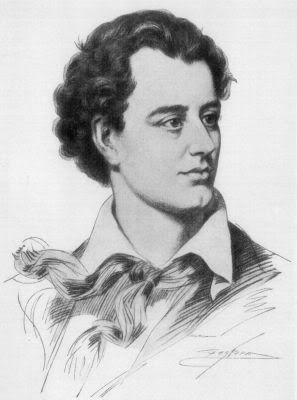
As I mentioned in my post on Horace Walpole, I have a fascination with scandalous eccentric artistic types. Lord Byron is one of my all time favourites. A brilliantly talented writer, his poetry is lovely and just a wee bit on the wild side. Not surprisingly, Don Juan is definitely my favourite of his poems--I still remember reading the entire thing in one sitting at a coffee shop in Bellingham one afternoon. Don Juan is definitely his greatest work, full of humour, satire, adventure and romance--this is one epic poem that has it all!
In University, I remember one of my English Professors actually refused to read part Don Juan out loud, because he felt it was blasphemous. This probably only made me like Byron (and the story of Don Juan) even more! 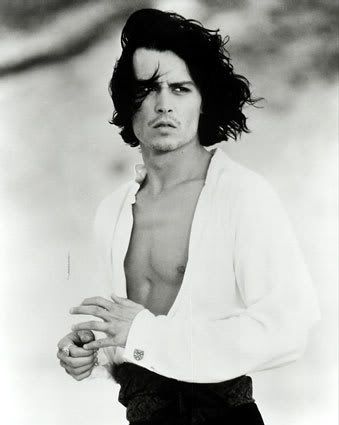
On a different note, I recently discovered the movie Don Juan De Marco (1995), starring Johnny Depp and Marlon Brando. It's a must-see fairy tale for grownups (I even made my husband watch it). It's the story of a soon-to-be retired psychiatrist (Brando) whose last case is a young man who is convinced he is Don Juan (Depp). It's not one the best movie ever, but the interaction between Depp and Brando is definitely worth watching.The film always makes me laugh, but it's also a great story about the importance of keeping romance alive.
Posted by
Margaret
at
5:12 AM
4
comments
![]()
![]()
Monday, March 10, 2008
The French Revolution as Seen Through the Lens of Classic Hollywood
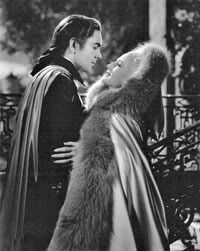
Well, I had a busy weekend! We went snowboarding again on Friday—I can tell I’m improving, but I still fell down a couple of times (ouch!).
I saw the greatest old movie today! I’m a huge classic film fan and I can’t believe I’ve never seen the 1938 version of Marie Antoinette, starring Norma Shearer and Tyrone Power. Although it has its moments of melodrama (it is an old movie, after all) I actually preferred it by far to the new Kirsten Dunst version. I particularly enjoyed Robert Morley’s portrayal of Louis XVI and John Barrymore as the dying Louis XV I’m a sucker for the black and white costume films that MGM produced in the 1930s—they are simply luscious! The costumes are not terribly historically accurate—but they are a great example of the glamorous costume design that makes classic movies such a joy to watch. 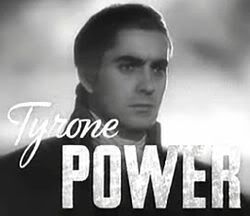
As a historian, I readily acknowledge that there are gaping historical “holes” in every film adaptation of Marie Antoinette’s life, but this one is charming and unpretentious (the fictitious love story between Marie Antoinette’s character and Tyrone Power adds some spice). Although it touches on her girlhood, it examines Marie Antoinette’s later life in more detail than the sprawling 2006 version. Much like the newer film adaptation, the tale is generous in its portrayal of the queen and the French people are generally depicted as a crazed and unruly mob.
In closing, I must confess to a certain fondness for stories about the French revolution. Most of what I've read and seen tends to portray the revolution in a highly unflattering light (I think every one of the authors wrote with a copy of Edmund Burke’s Reflections of the Revolution in France in one hand). I suppose writers saw the French Revolution as a good place to draw the line on revolutions (since the American revolution gets fairly positive press). The Scarlet Pimpernel was another of my favourite books growing up, and I adore the 1934 film version starring Leslie Howard and Merle Oberon (she is so incredibly elegant as Marguerite Blakeny!). A Tale of Two Cities is, of course, another must read/see. Again, the 1935 version is, in my view, the best, (Ronald Coleman's rendition of “Tis a far far better thing” speech is classic).
Posted by
Margaret
at
1:40 PM
3
comments
![]()
![]()
Monday, January 14, 2008
Review of Miss Potter
In fact, he was so into the film that we ended up seeing all the special features that went with the DVD.Generally the "additional features"are an incredible bore (deleted scenes that should have burned, etc.). Surprisingly, they were actually very good! Even the "making of" feature was fascinating! Rather than focusing on the actors, the features were largely documentaries of Beatrix Potter's life that added a great deal to the value of the movie. One detail I found quite interesting was that Beatrix Potter's father was a friend of John Millais, the pre-raphaelite painter! It's a small world, afterall. Also intrigueing was her early adoption of merchandising to sell her books--apparently Peter Rabbit tea sets, stuffed toys, water bottles and the like are not modern-day inventions--Potter herself created a number of different products in order to promote her books. Interestingly, while not averse to making profits, she did turn down Walt Disney's offer to make Peter Rabbit into a motion picture in 1936.
Another particularly innovative aspect of Beatrix Potter's children's book empire is what she did with the profits. From 1905 onward, Beatrix dedicated herself to purchasing farms in the Lake District to protect them from developers. She also became a breeder of Herdwick Sheep, a rare breed found only in the Lake District (in 1943 she became the first woman to be President of the Herdwick breeders association). Upon her death in 1945 she bequethed over 4000 acres of land to the National Trust--one of the largest amounts of land ever donated. She was certainly an incredibly creative woman and a visionary in terms of her views on land protection.
(image copyright Momentum pictures)
Posted by
Margaret
at
10:00 AM
2
comments
![]()
![]()

